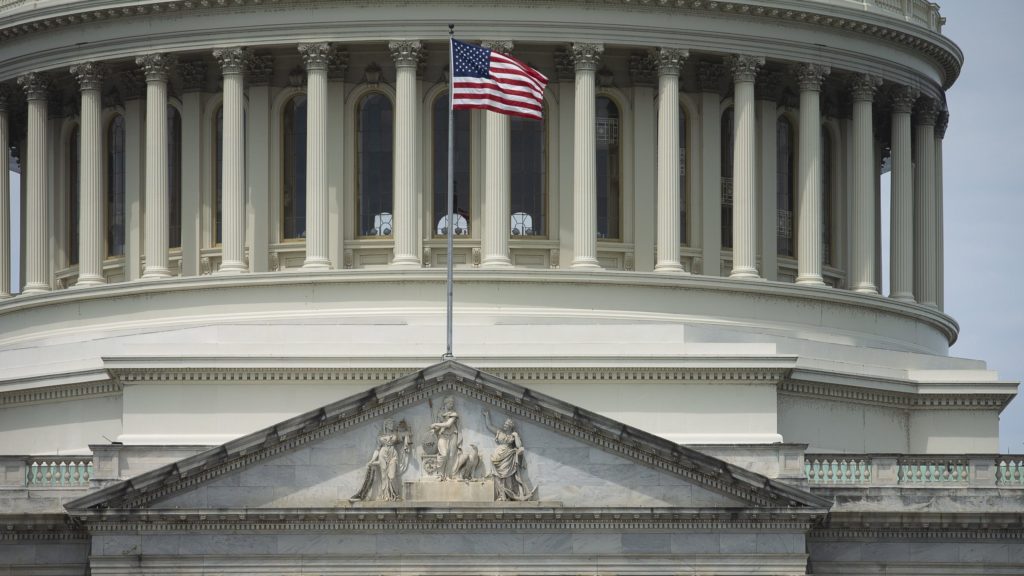The federal government appears to be heading toward a shutdown at the end of September, as congressional lawmakers are running out of time to pass legislation funding the government after Sept. 30. Advocacy groups, including the U.S. bishops conference, have cautioned against allowing that to happen, urging lawmakers to come to an agreement and keep the government open.
A government shutdown occurs when Congress fails to pass some form of budget legislation, or if that is not signed into law by the president. Some types of essential government services are exempt, including Social Security payments to seniors. But many other functions of government are suspended amid shutdowns, such as paychecks for government workers, including members of the armed services.
Unless lawmakers come to an agreement, the government will shut down on Oct. 1.
Republicans in the House, some of whom are seeking steep spending cuts or other demands including ending aid provided to Ukraine as it fends off Russian President Vladimir Putin's invasion of that country, appear unable to secure enough votes within their party to pass legislation in that chamber without Democratic support. The White House and the Senate are in Democratic control, so even if House Republicans do pass a bill, it may be dead on arrival in the upper chamber.
Senate Minority Leader Mitch McConnell, R-Ky., has warned House Republicans against a shutdown, arguing it would not be politically advantageous for Republicans to allow the government to close, telling reporters at the Capitol on Sept. 19 that shutdowns "never have produced a policy change, and they've always been a loser for Republicans politically." McConnell has reportedly entered talks with Majority Leader Chuck Schumer, D-N.Y. to broker a bipartisan budget deal.
On behalf of the bishops of the United States, Archbishop Timothy P. Broglio of the U.S. Archdiocese for the Military Services, who is president of the U.S. Conference of Catholic Bishops, wrote in a letter to the Republican and Democratic leaders of both the House and Senate that "on numerous occasions over the past several decades, the USCCB has called for bipartisan action to avert or bring an end to federal government shutdowns and the hardships that come when Congress and administrations fail to reach agreements on such actions."
"As the beginning of Fiscal Year (FY) 2024 approaches, the nation once again faces the possibility of a government shutdown," the Sept. 21 letter said. "As always, the Catholic bishops of the United States stand ready to work with leaders of both parties to address this situation."
Archbishop Broglio wrote that lawmakers' priorities should be "in the areas of enforcement of child labor laws, protection of migrant children, refugee resettlement, domestic assistance, international assistance, humanitarian assistance to Ukraine, the Shelter and Services Program, and other matters."
He also urged lawmakers to reject including provisions of "a divisive border and immigration bill" the House narrowly passed earlier this year, which some GOP lawmakers have made a condition for their support of the fiscal year 2024 funding bill.
"My brother bishops and I continue to believe that such provisions would severely weaken humanitarian protections long enshrined in U.S. and international law," Archbishop Broglio said, noting the bishops raised objections to the border bill earlier in September. "Proceeding with their inclusion would make the measure objectionable and untenable. Immigration reform is long overdue, and compromise is necessary to achieve it, but unjust ultimatums must be rejected."
He added that "the bishops renew our call for bipartisan cooperation on a (Continuing Resolution) to avoid a government shutdown and enact a just budget that reduces future unsustainable deficits, protects poor and vulnerable people, advances the common good, and promotes human life and dignity. The Conference remains committed to working with you and the Administration toward these ends."
Some advocacy groups warned about the impact of a shutdown or spending cuts sought by some House Republicans to the Special Supplemental Nutrition Program for Women, Infants and Children program, or WIC, which helps low-income families buy items such as fruits and vegetables.
Although funds for the WIC program itself would continue in a brief shutdown, advocates say that services could be disrupted in the event of a lengthy shutdown as staffing and funds dwindle.
In a statement, Kate Franken, board chair of the National WIC Association, said that "as Congress moves closer to what would be a disastrous federal government shutdown, there is a growing risk that millions of pregnant and postpartum women, babies, and young children will not have the nutrition and health supports they need to thrive."
Franken said the group "strongly urges Congress to reach a deal that avoids a shutdown and provides WIC with the funding it needs to support any individual or family who qualifies."
"Without the urgent investment of additional funds, state WIC offices could soon be forced to consider waiting lists for prospective participants -- a drastic step not seen in nearly 30 years," Franken said. "We simply cannot cross that line. Congress must live up to its responsibility to all those who depend on the program, providing sufficient funding in a continuing resolution to ensure no one is turned away from WIC in the short term and full funding in a year-end spending package to support WIC's critical mission moving forward."

